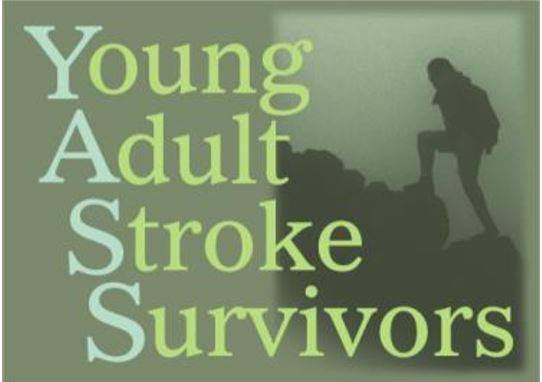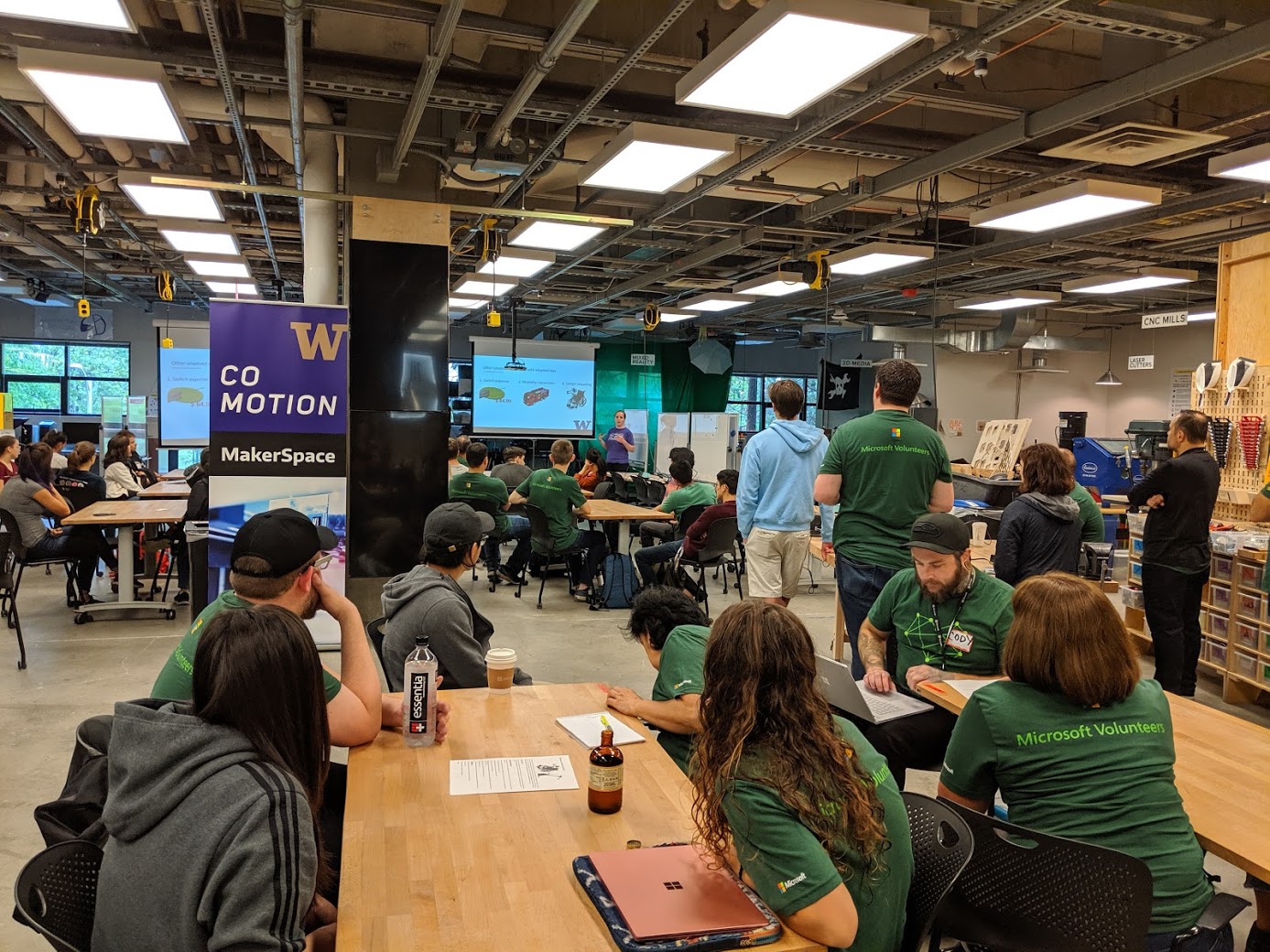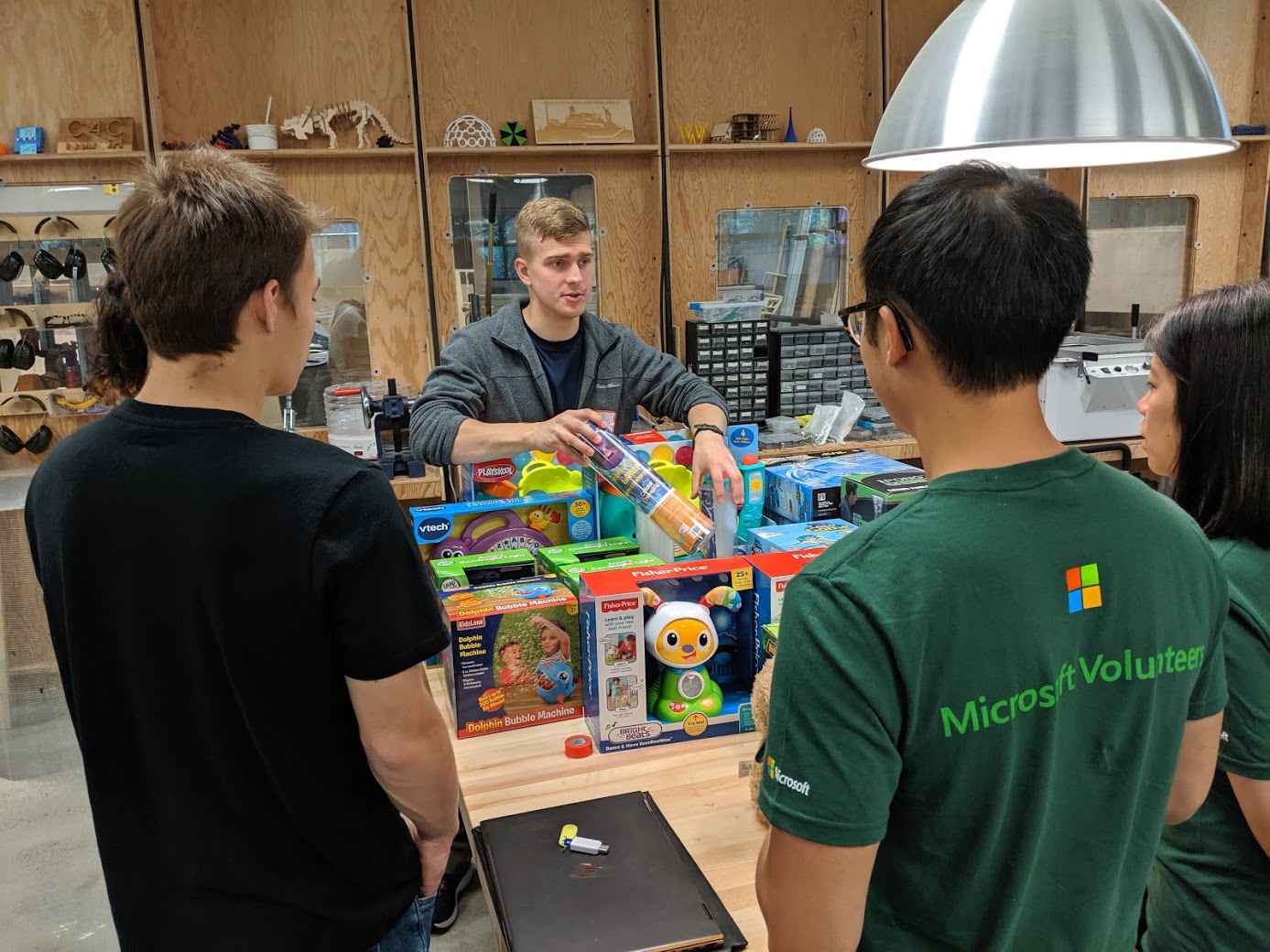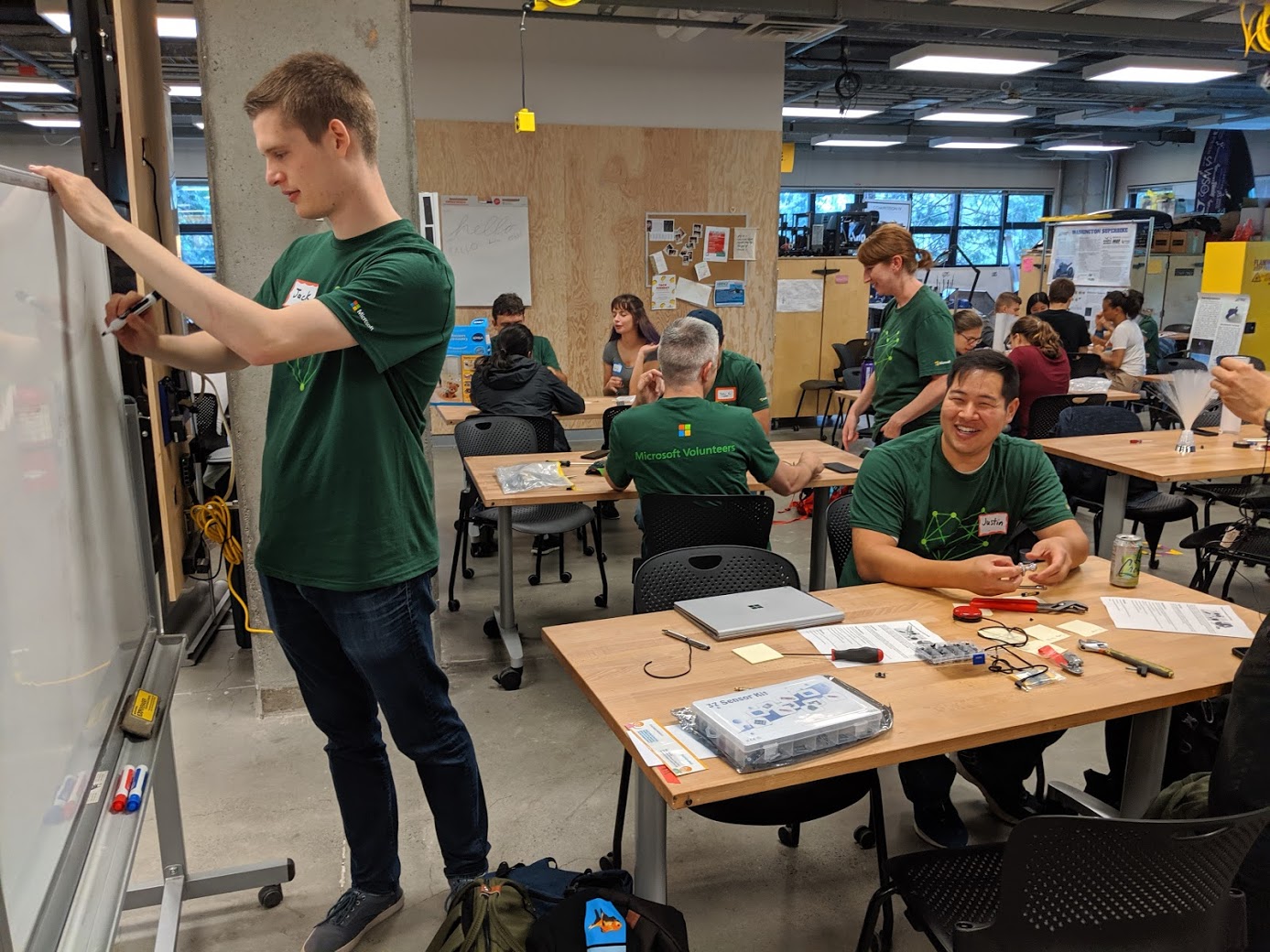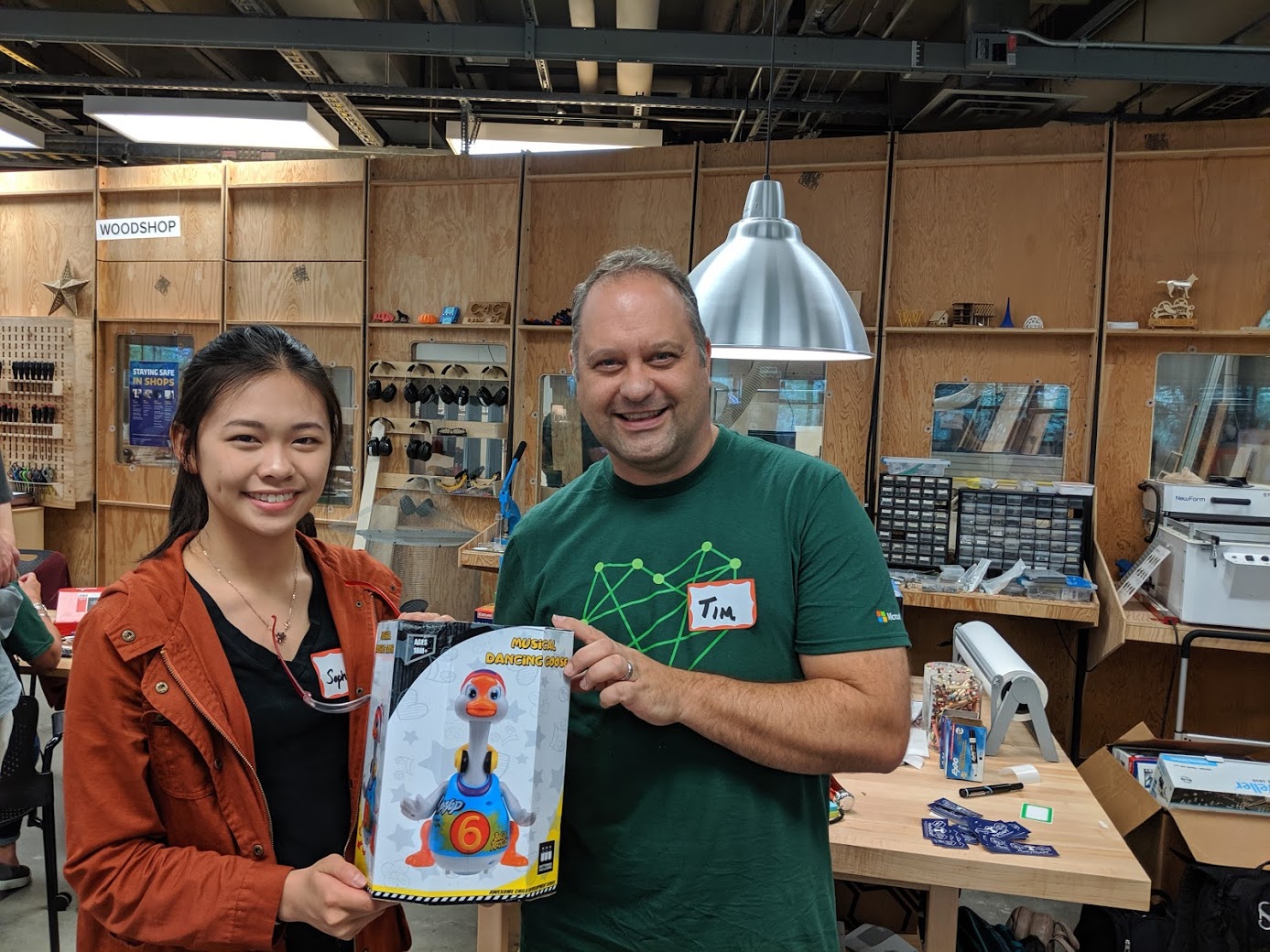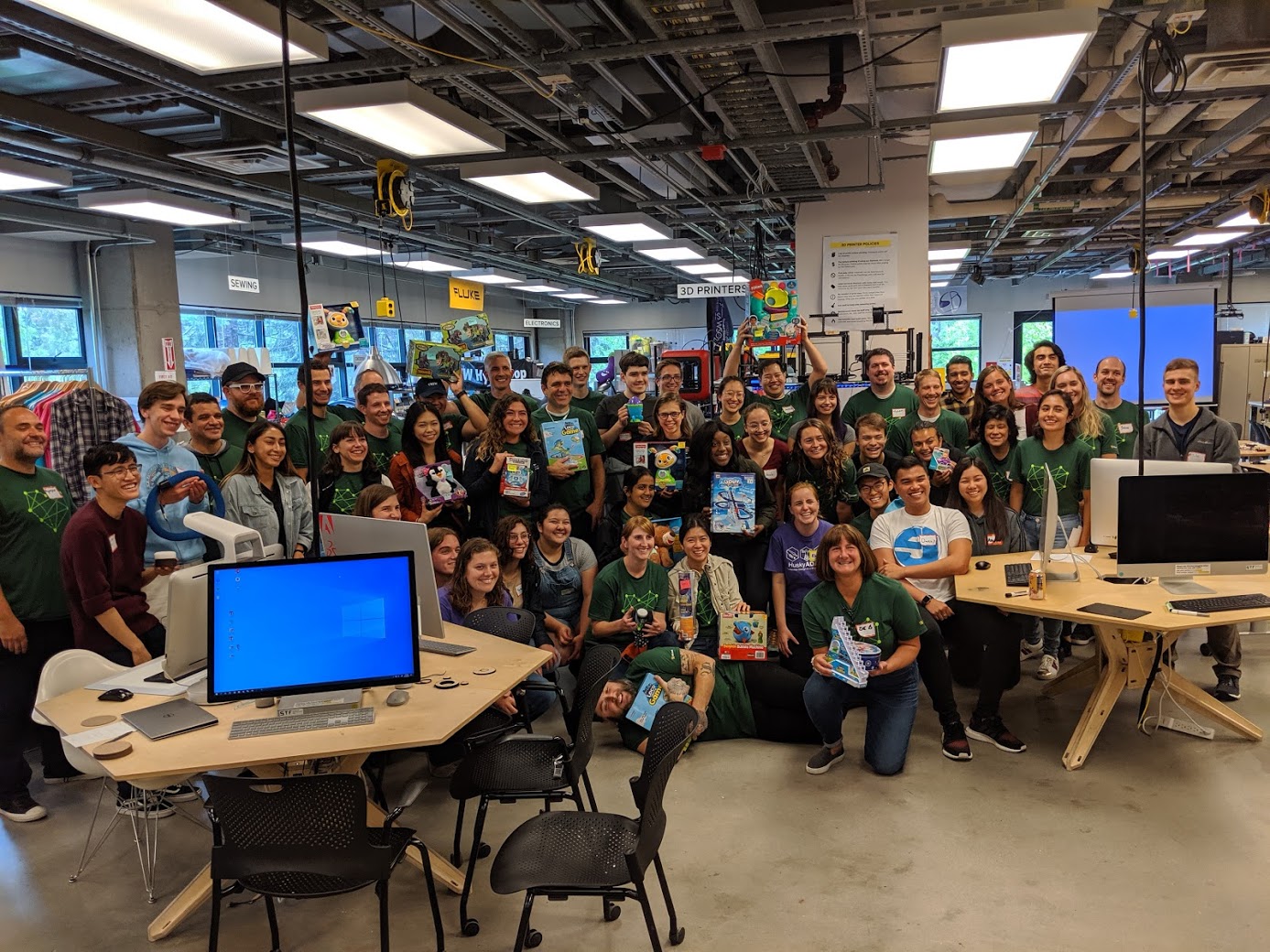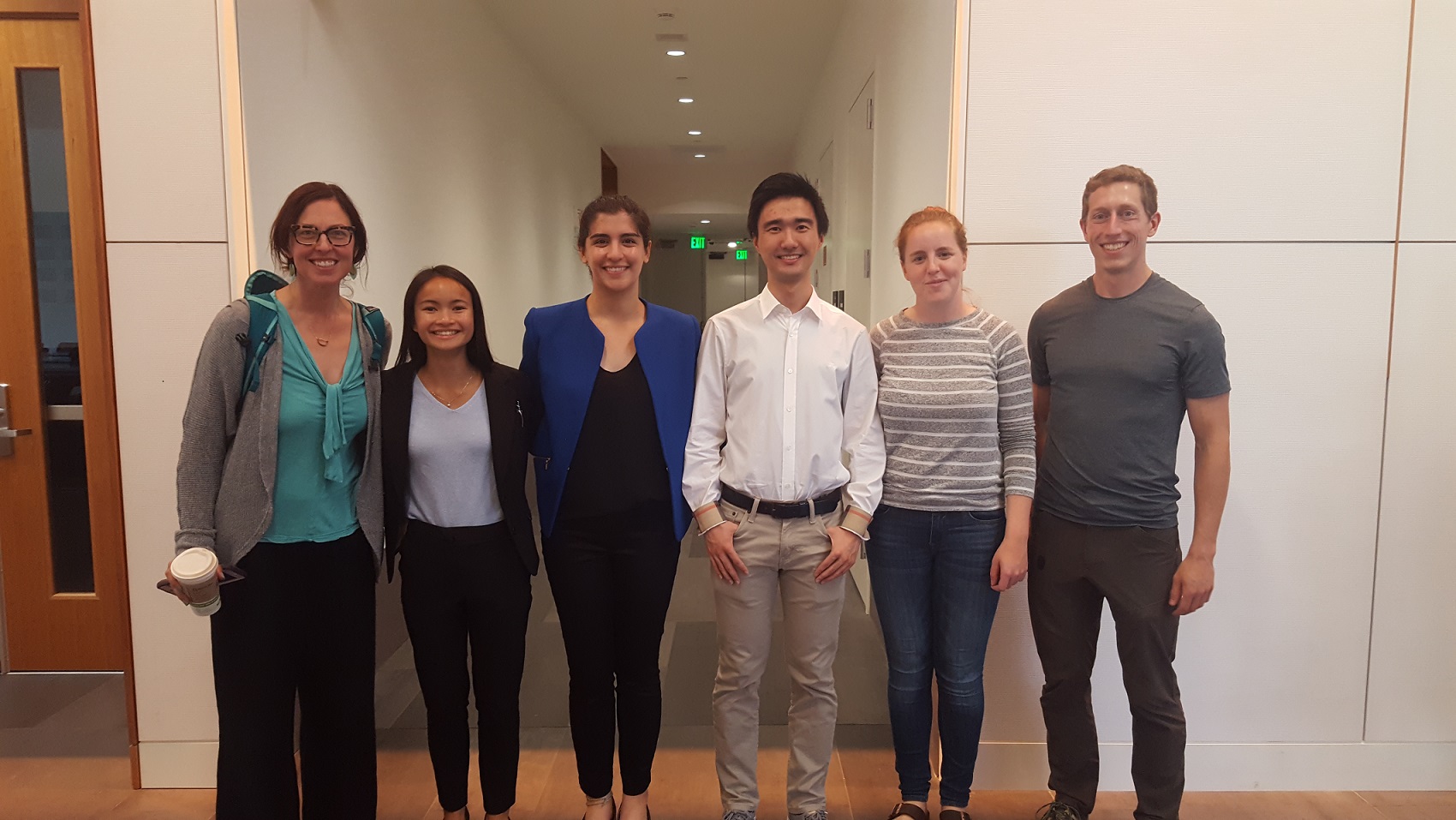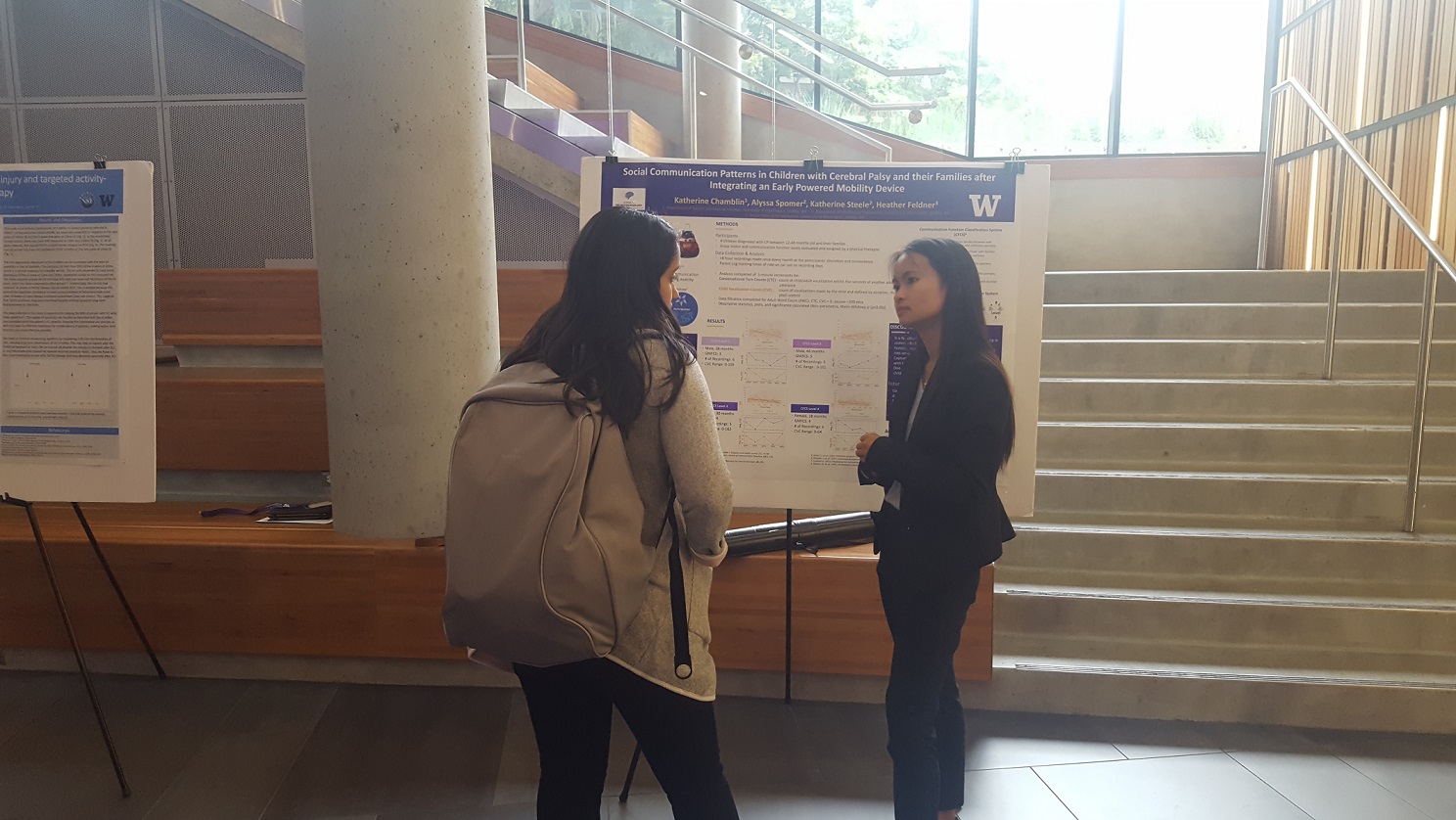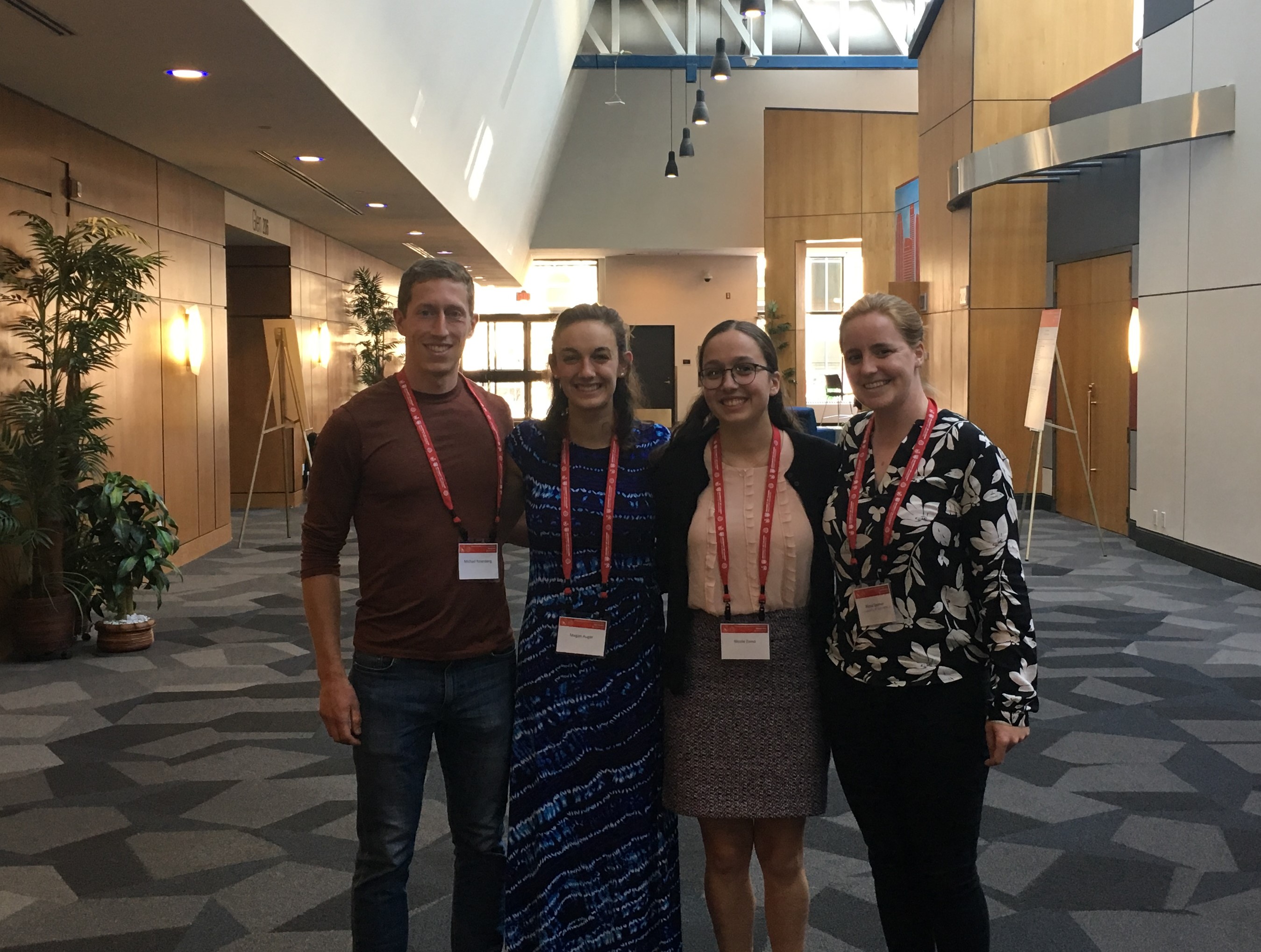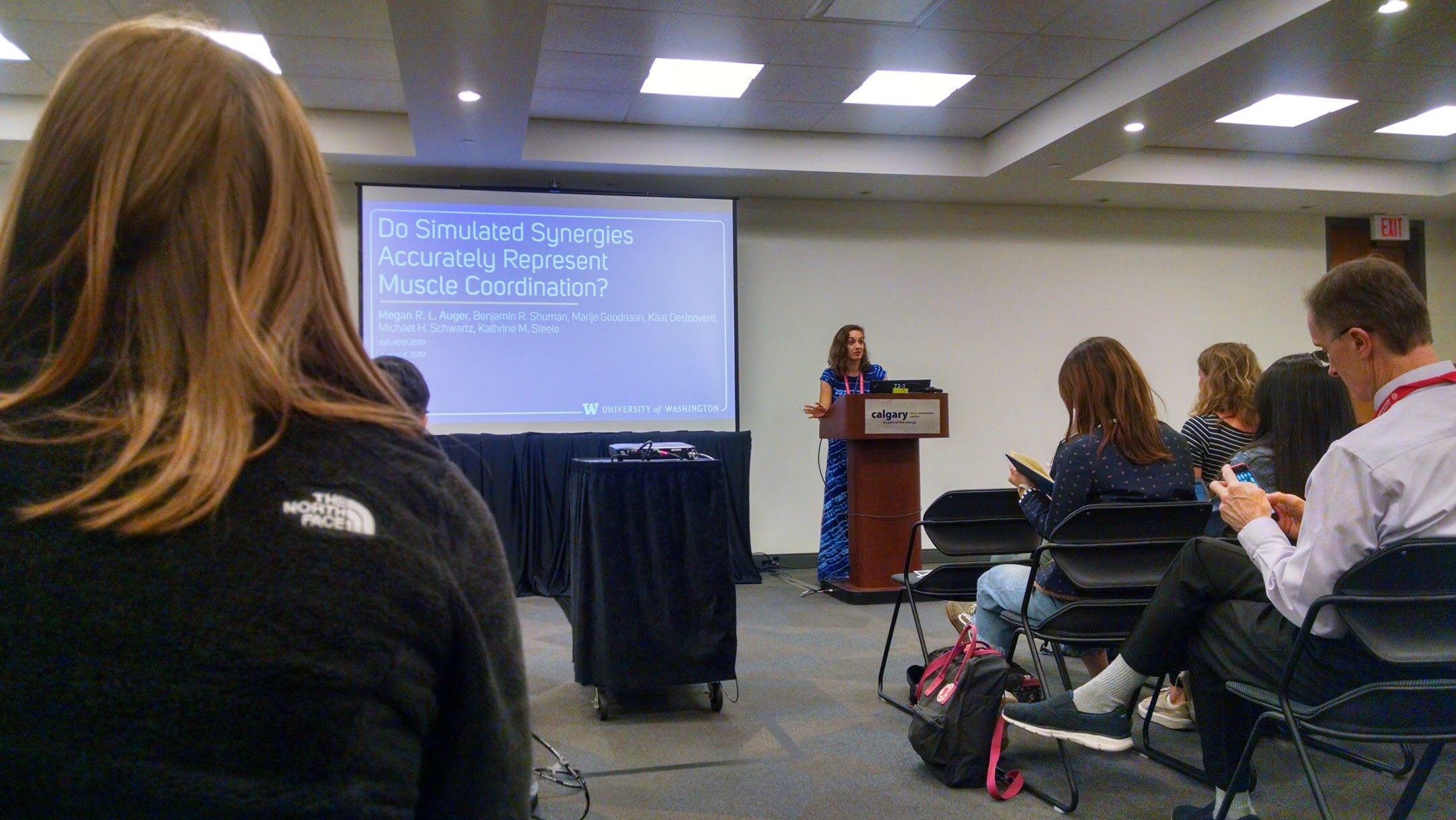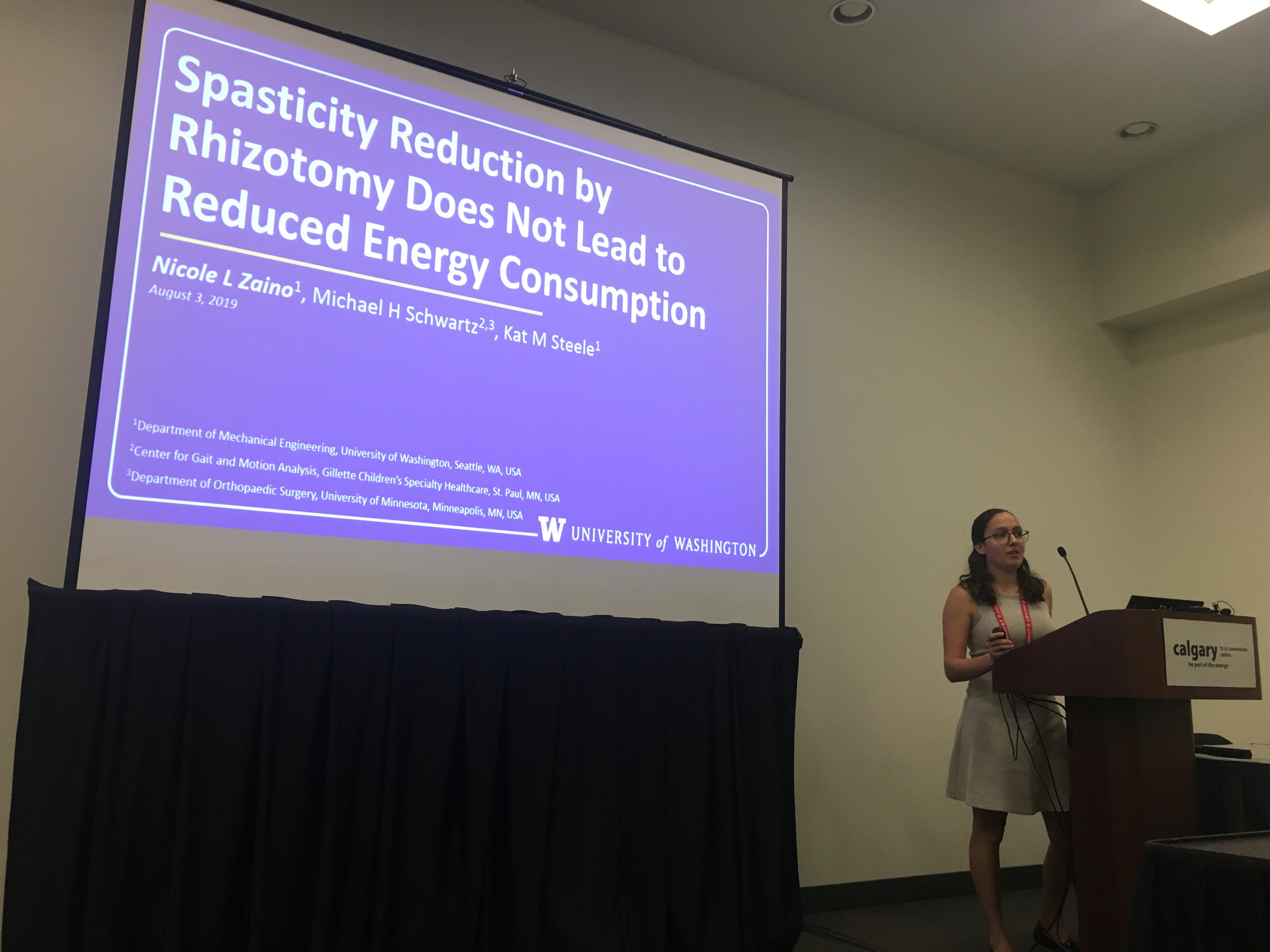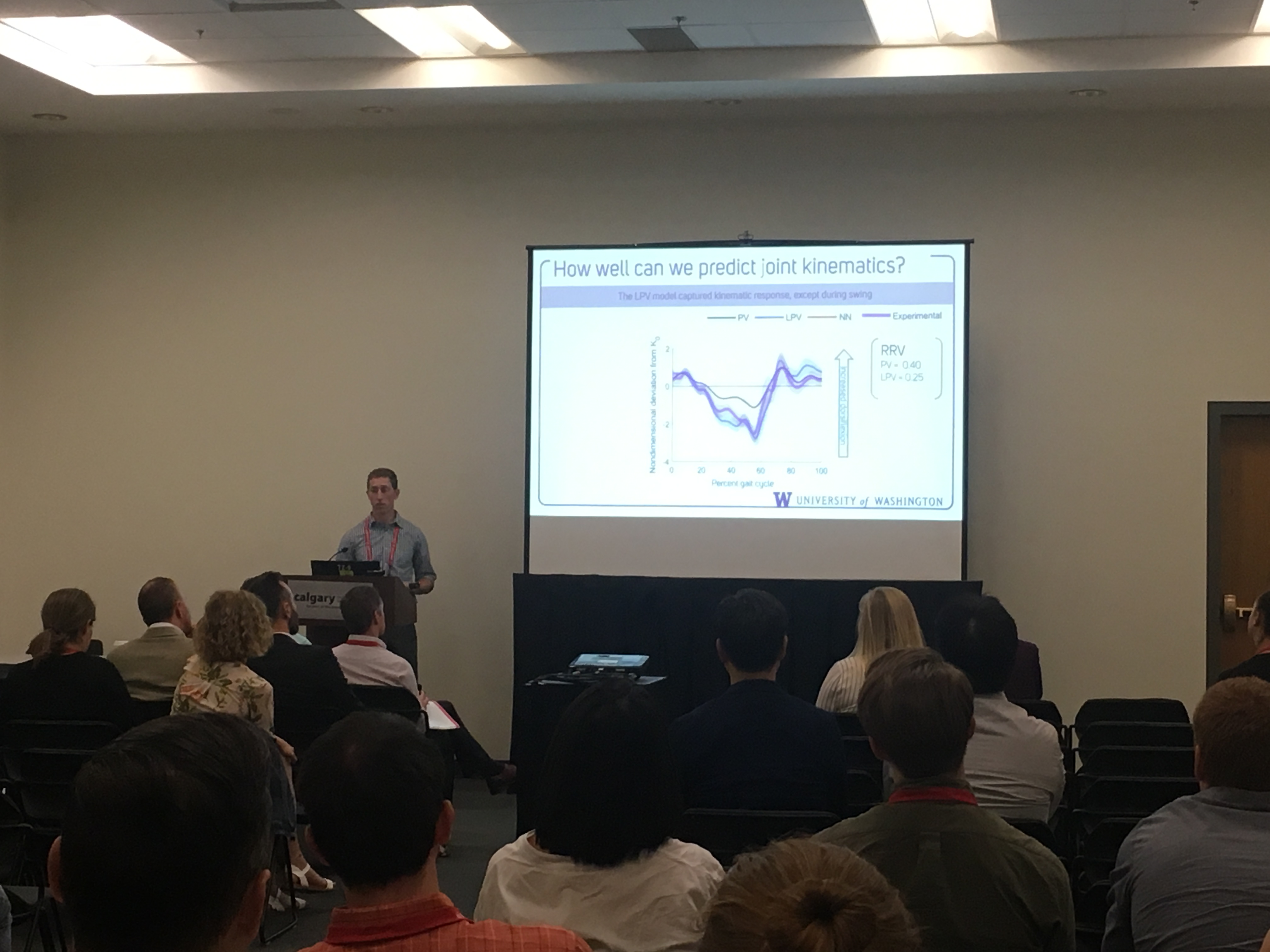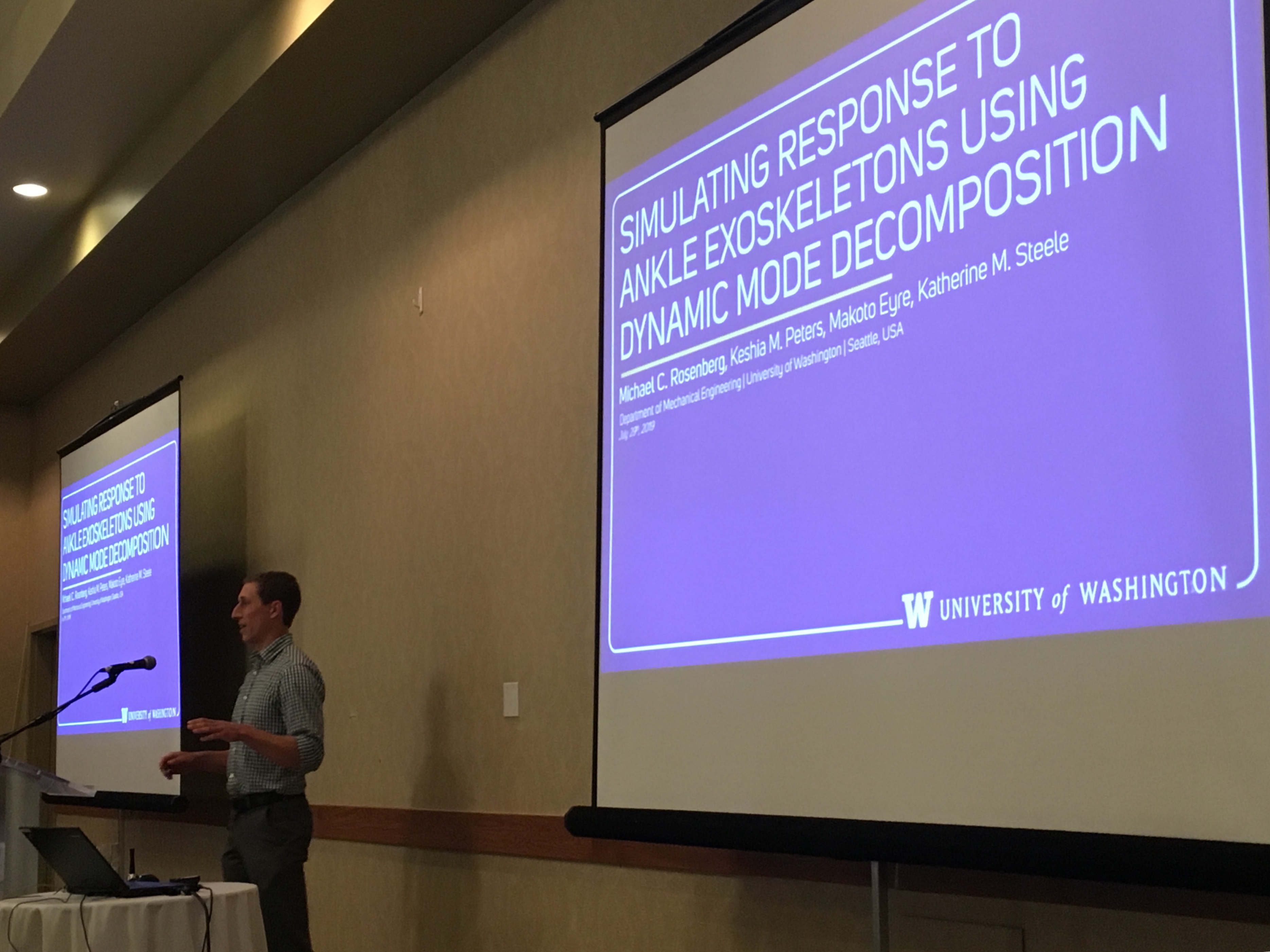Steele Lab members – Kat, Christina, Nick, and Momona – were invited to present their research about wearable sensors for stroke recovery and device control to the Seattle Young Adult Stroke Survivors (YASS). YASS is a support group for individuals who have experienced a stroke and creates a community to learn, listen, share, and more. Steele lab was one of the first research groups to come and share our work with them.
Our presentation began with background information regarding neurophysiological changes after stroke to provide insight into upper extremity functional impairments – including weakness, loss of dexterity, and abnormal tone. Wearable sensors, such as electromyography (EMG), can provide information regarding muscle function. Many of the listeners were surprised to hear that their own smartphones or watches can act as wearable sensors!
A focus of our research is detecting muscle activity early after stroke using EMG. One member recalled thinking their muscle was firing during their acute recovery but could not see any physical movement. EMG allows us to capture that type of activity and any functional changes throughout recovery, empowering patients and clinicians to track their recovery and adjust their therapy regimen. The crowd was interested in using EMG to evaluate their own muscles, identify which were firing, and guide their rehabilitation.
EMG not only helps us track recovery, but can be paired with consumer technology. Nick demonstrated how using muscle activity from the affected limb can incorporate rehabilitation into daily computer use. EMG signals can simulate pressing keys on a keyboard or moving a mouse cursor, making it easier for people with limited mobility to use technology. YASS members expressed enthusiasm about the increasing commercial availability of such devices so they can buy them and give them a try.
It was a great opportunity to connect with stroke survivors and hear their thoughts on wearable sensors. Thank you to YASS for having us come in and share our research!

